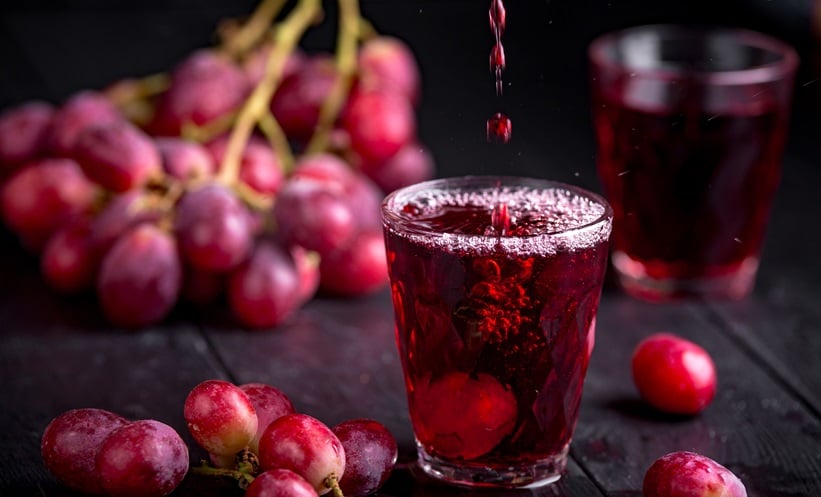A RECENT study exploring the relationship between beverage consumption and erectile dysfunction (ED) has revealed that regular grape juice consumption may reduce the risk of ED, especially in men over 40 years old.
The study used data from the National Health and Nutrition Examination Survey (NHANES) 2003–2004. Associations between ED prevalence and beverage consumption were analysed using logistic regression, adjusting for various confounding factors.
The results showed that men who consumed grape juice regularly (at least 5 times per week) had a 79% lower risk of ED compared to those who did not consume grape juice regularly (odds ratio: 0.21; 95% CI: 0.08–0.54; P=0.001). This association remained significant in subgroup analyses for men over 40, reinforcing the potential benefits of grape juice in this age group (all P<0.05).
In addition to grape juice, other beverages such as tomato, orange, apple, pineapple, lemonade juices, and soft drinks initially appeared to have some correlation with ED in the univariate regression analysis. However, after adjusting for confounders using propensity score matching, only grape juice consumption consistently showed a statistically significant relationship with a reduced risk of ED (odds ratio: 0.12; 95% CI: 0.03–0.44; P=0.001).
The study highlights a potentially simple dietary modification that may help reduce ED risk in men, particularly those over the age of 40. While further research in larger cohorts is needed to confirm this association, incorporating grape juice into one’s diet, at least 5 times per week, could be a beneficial strategy for men looking to manage or prevent ED.
Reference
Wu L et al. Exploring the association between consumption of different types of beverages and erectile dysfunction in US men: evidence from NHANES 2003-2004 data. Aging Male. 2025;28(1):2438821.








